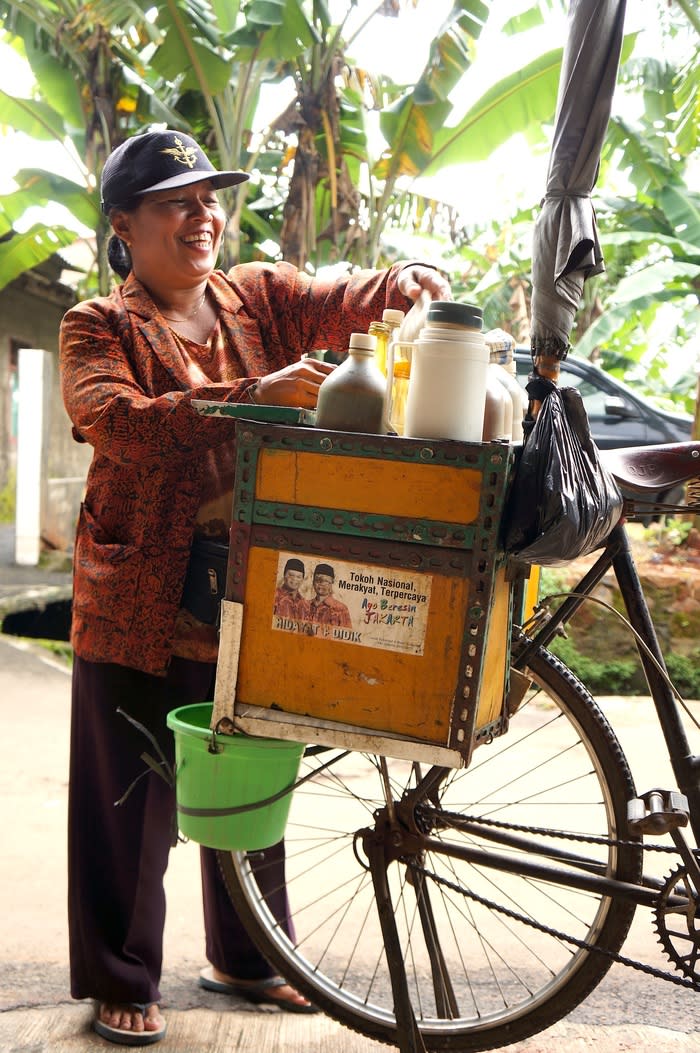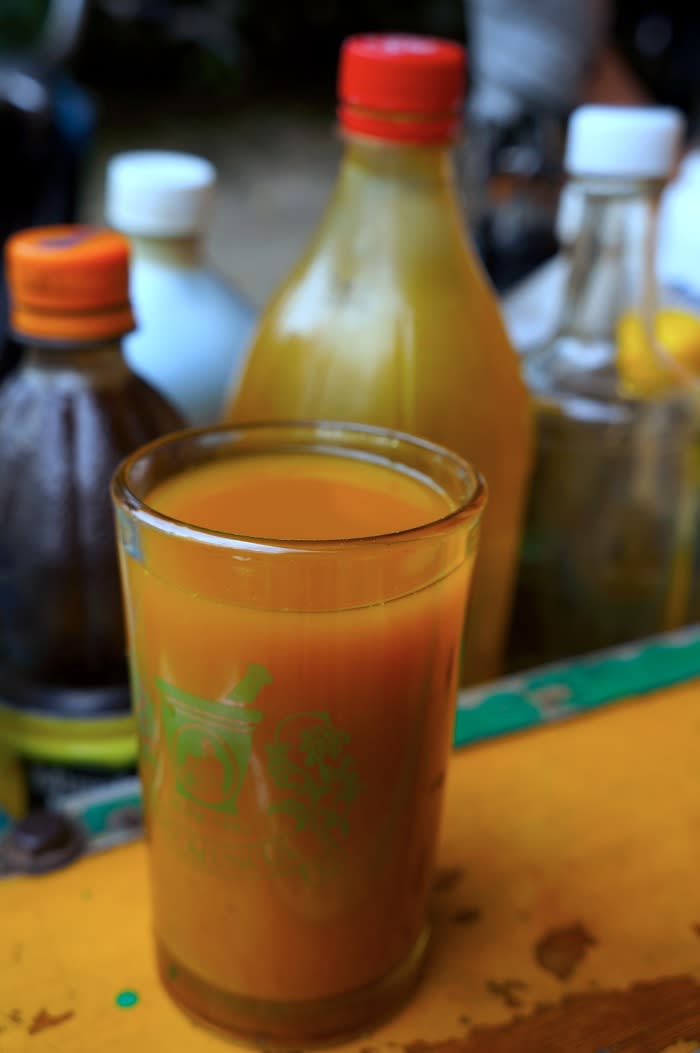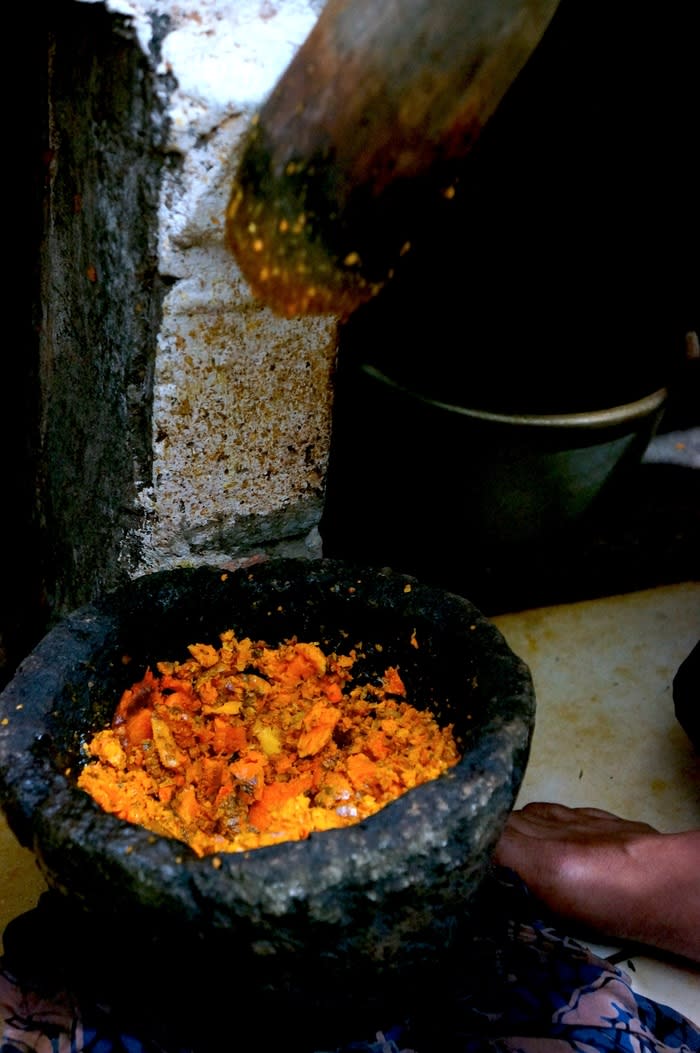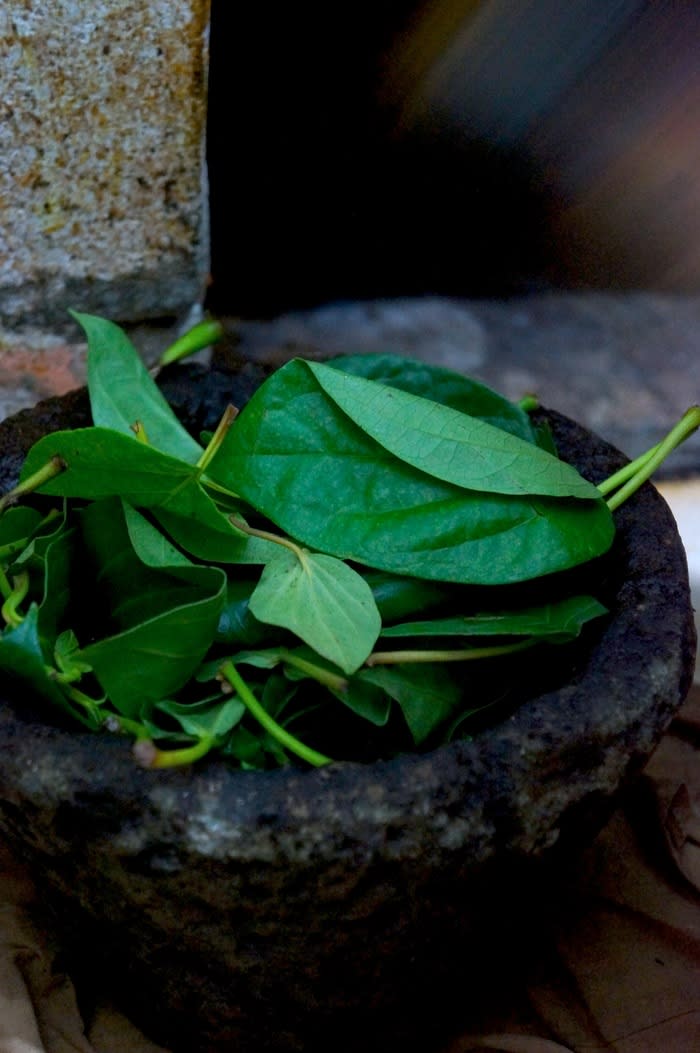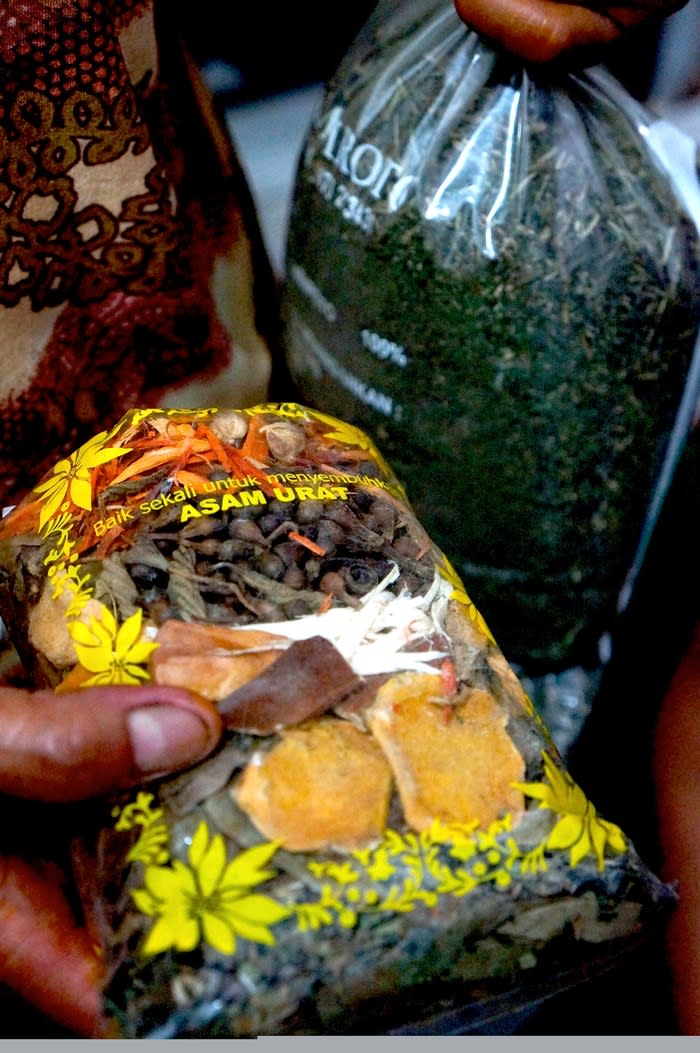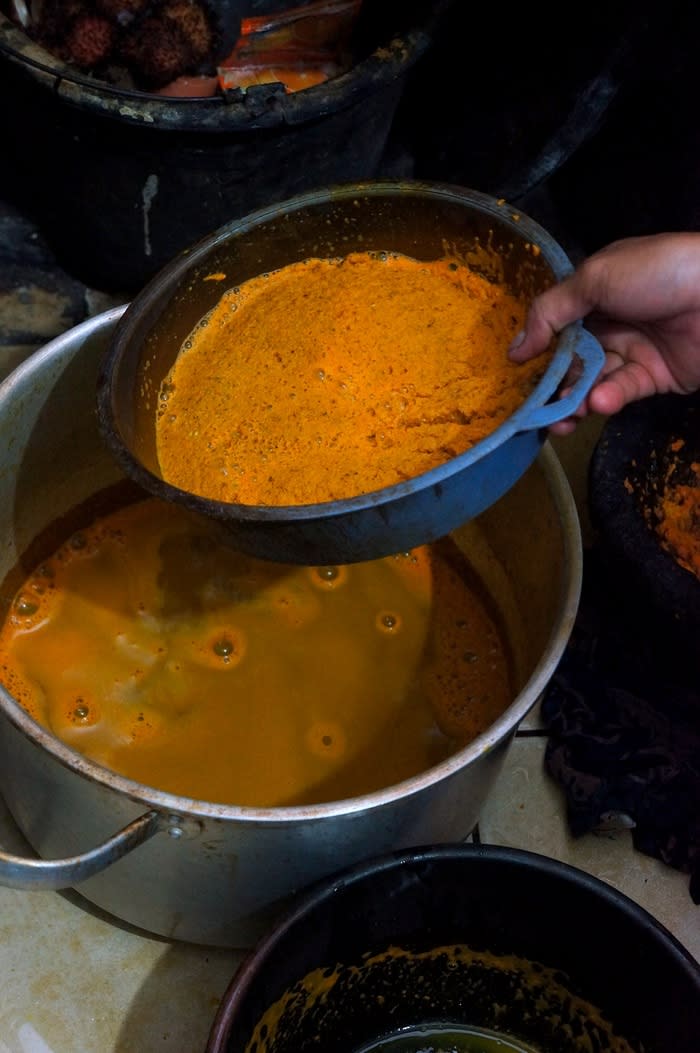The making of 'jamu'
The traditional herbal medicine jamu is considered by some Indonesians to be a primary element in their lives.
Six traditional beverages on hot or cold days
Some jamu sellers can still be found carrying their wares, in a basket fastened to their torsos using a sling made of fabric, from door to door in local neighborhoods, hence the name jamu gendong, the word gendong referring to someone carrying something precious.
Fueled by curiousity about the process of making jamu, The Jakarta Post Travel recently visited the kitchen of Partini, a 42-year old jamu seller.
Partini, also known as Mbak Tin, used to sell her jamu the "gendong" way. But nowadays she goes around neighborhoods using a bicycle.
She learned to make jamu from her older sister, who is also a seller.
The daily jamu-making routine begins at 3 p.m. for the woman who has been in the trade for 18 years.
Mbak Tin was kind enough to let us watch her make the jamu kunyit asem (turmeric and tamarind), which is known to benefit the digestive system.
First, she pounded some washed kunyit (turmeric) by hand using stones. After it was fine enough, she ground it again using a blender and added some water.
“When I was younger, I didn’t use a blender. But now it’s too tiring for me to pound the ingredients by hand only,” Mbak Tin said.
The turmeric juice is then filtered and boiled for about one to one-and-a-half hours. She added palm sugar, asem (tarmarind), cinnamon, daun pandan (screw pine leaves) and some salt. The process was free from conventional measuring techniques.
Mbak Tin's kunyit asem ended up filling three 1-liter bottles. “It can last two days outside a refrigerator,” she said.
She added that several jamu gendong sellers chose to use turmeric powder instead of making it themselves, but the taste was not as good as the real thing.
According to Mbak Tin, 1 kilogram of kunyit costs Rp 10,000 (US$1). She sells a glass of the finished beverage for Rp 2,000, while the starting price for a bottle is Rp 15,000.
Kunyit asem was the only jamu that Mbak Tin made that afternoon because with that particular jamu, it can be boiled again later in the morning to add more taste to it.
Her routine continued at 3 a.m. the next day by cooking the rest of the herbal medicines.
The first one was jamu jahe (ginger). She pounded some red ginger by hand using stones, before adding water, cinnamon, daun pandan, palm sugar and salt and then boiled the mixture.
Mbak Tin then made beras kencur (rice and galangal root) jamu by pounding roasted rice with kencur (greater galingale), kecipir (winged beans), kedaung (Parkia roxburghii G.Don.), cinnamon and adas pulowaras (Foeniculum vulgare Mill.). She then added a little roasted rice that was only half-cooked “to create a white color”, she explained.
As with kunyit asem, the mashed ingredients were then blended with some water. She then added some jamu jahe to the result, filtered it, blended it again and filtered it again.
“Beras kencur cannot be boiled because it will turn into porridge. That’s why I have to cook it near to the time I’ll be selling it,” said Mbak Tin.
Her usual door-to-door sales routine starts at 6 a.m. and ends around 12 p.m. at the latest. Her only day off is Sunday, which she uses to shop for ingredients at the Kebayoran Lama traditional market.
She also made jamu paitan (bitter medicinal herbs), which is said to be able to increase one's appetite. The ingredients for this type of jamu is simple because she only needs to mix a pack of Jamu Godog Tradisional (instant traditional herbal medicine), some tremendously bitter sambiroto (Andrographis paniculata Nees) herbs and some water before boiling them all.
Last but not least, Mbak Tin pounded sirih leaves, added pinang (areca nut) powder - as she was unable to get the real nuts, and boiled it together with water, making jamu sirih. This jamu is said to be good for women who suffer from leucorrhoea (whitish vaginal discharge).
She also keeps various types of ready-made jamu powder to hand, such as Anak Sehat (for kids), Jamu Encok (to heal muscle strain) and Tujuh Keliling (to relieve headaches) for customers who have specific needs. She mixes these powders with hot water and gives it to customers along with a glass of jamu jahe to help relieve the bitter aftertaste.
Mbak Tin finished cooking all the jamu in one hour. After filling her bottles, she went on her way to visit her loyal customers.
Read also: Will Meyrick's culinary journey: Palm sugar


